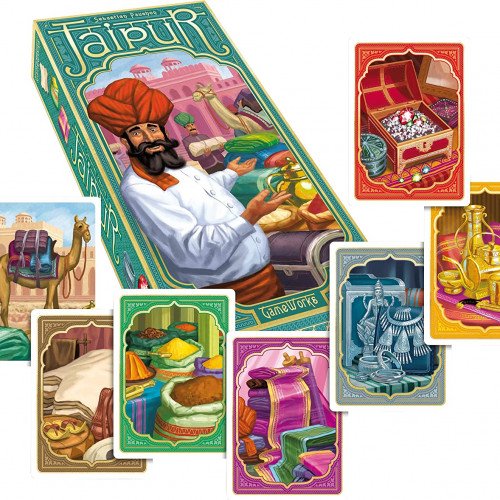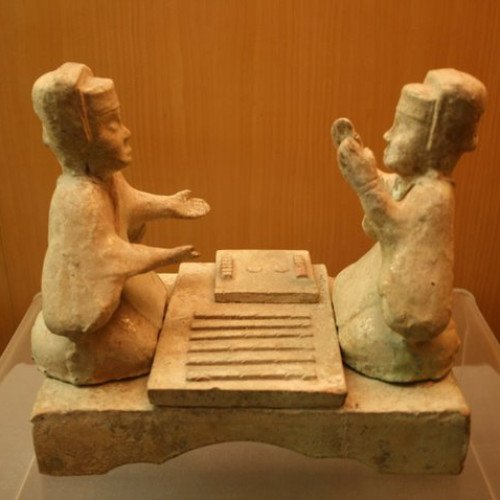JAIPUR VS LIUBO

JAIPUR
Jaipur is a card game for two players. It was created by Sébastien Pauchon in 2009 and published by Asmodee. Players assume the roles of powerful merchants in Jaipur, the capital of Rajasthan. The aim is to receive two "seals of excellence" and be invited to the court of the Maharaja. The game focuses on buying, exchanging, and selling at better prices, all while keeping an eye on both your camel herds. Overall, the board game has received favorable reviews, many acknowledging its simplicity, yet sufficient depth. Shut Up & Sit Down have suggested that "great game for seasoned vets but also something you could easily introduce to people who don’t play a lot" whereas iSlayTheDragon said "Jaipur is a blast to play". Board Game Land has suggested that the game was "one of the top card games for couples". Jaipur has continued to be a popular game with recommendations into 2020 as well as being part of the Mind Sports Olympiad 2020 competition.
Statistics for this Xoptio

LIUBO
Liubo (Chinese: 六博 or 陸博; pinyin: liù bó; Wade–Giles: liu po; lit. 'six sticks') is an ancient Chinese board game played by two players. For the rules, it is believed that each player had six game pieces that were moved around the points of a square game board that had a distinctive, symmetrical pattern. Moves were determined by the throw of six sticks, which performed the same function as dice in other race games. The game was invented no later than the middle of the 1st millennium BCE, and was popular during the Han dynasty (202 BCE – 220 CE). However, after the Han Dynasty it rapidly declined in popularity, possibly due to the rise in popularity of the game of Go, and it became totally forgotten. Knowledge of the game has increased in recent years with archeological discoveries of Liubo game boards and game equipment in ancient tombs, as well as discoveries of Han dynasty picture stones and picture bricks depicting Liubo players. It is not known when the game of Liubo originated, although according to legend it was invented by Wu Cao (烏曹, called Wu Zhou 烏胄 in the early 2nd century CE Shuowen Jiezi dictionary), a minister to King Jie, the last king of the Xia dynasty, who according to traditional chronology reigned 1728–1675 BCE. While there is no archeological or reliable documentary evidence to support the view that Liubo dates back to the Shang dynasty (1600–1046 BCE), early Chinese records do indicate that Liubo was already a popular game by the Warring States period (476–221 BCE). For example, the Records of the Grand Historian records a speech made during the reign of King Xuan of Qi (reigned 319–301 BCE) that claims that the capital city of Linzi was so wealthy that its citizens were all able to indulge in activities such as playing musical instruments, cockfighting, dog racing, playing Liubo and playing kick ball.